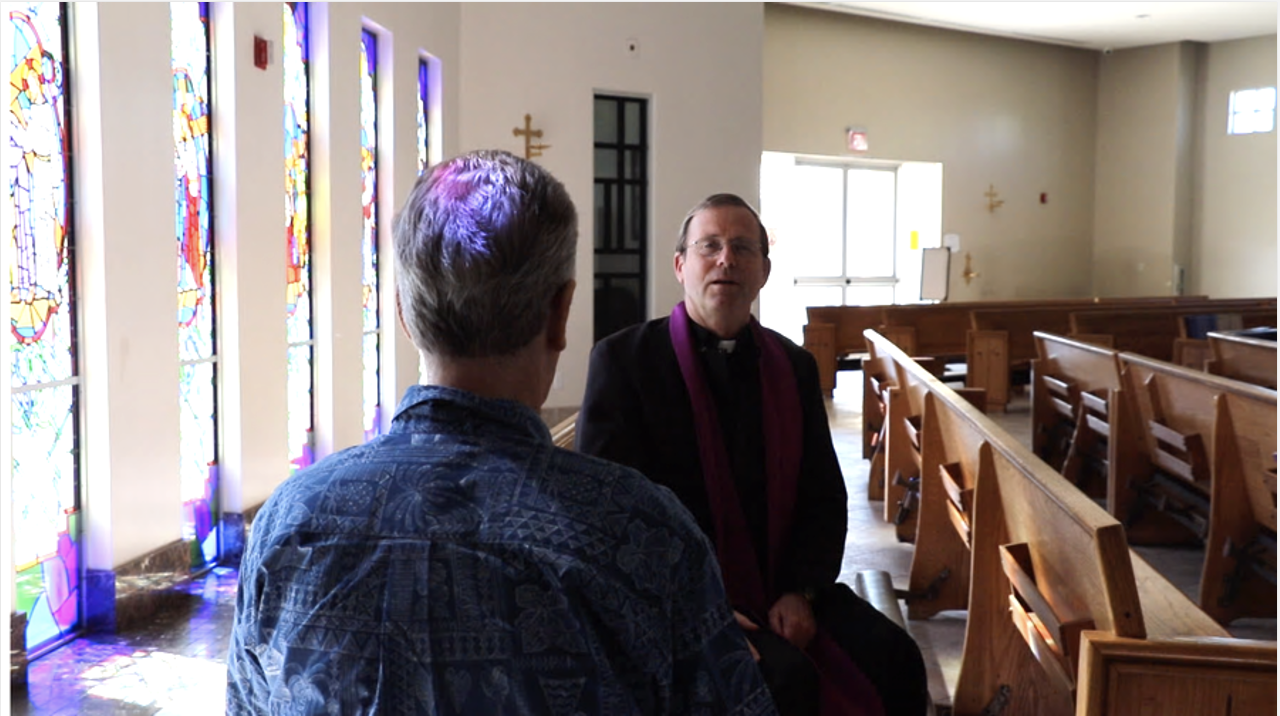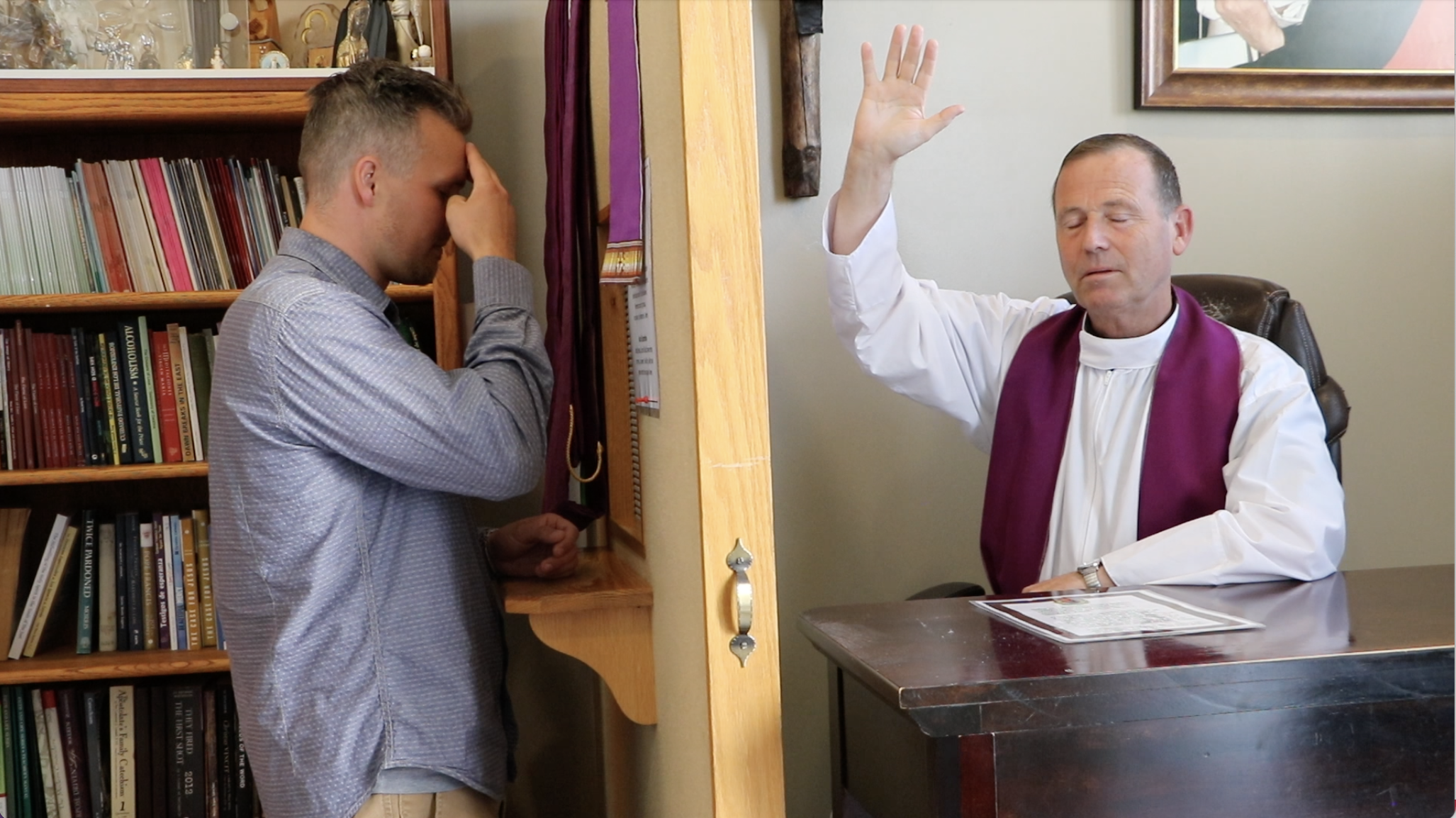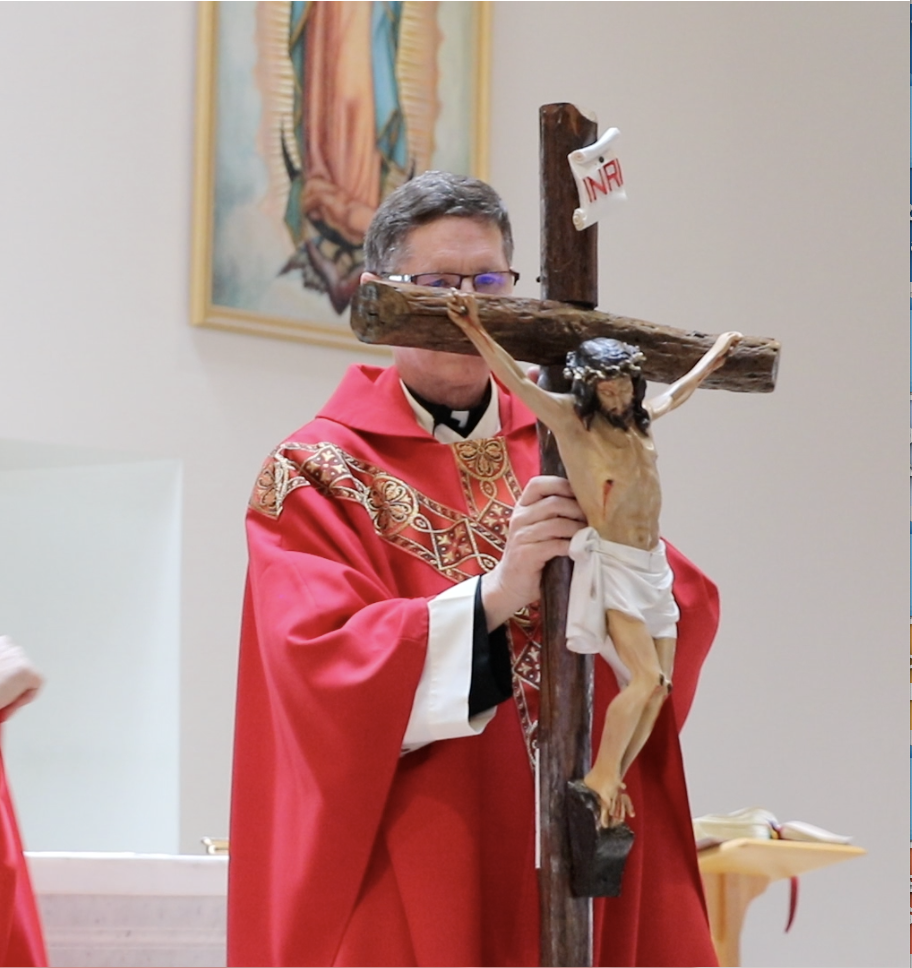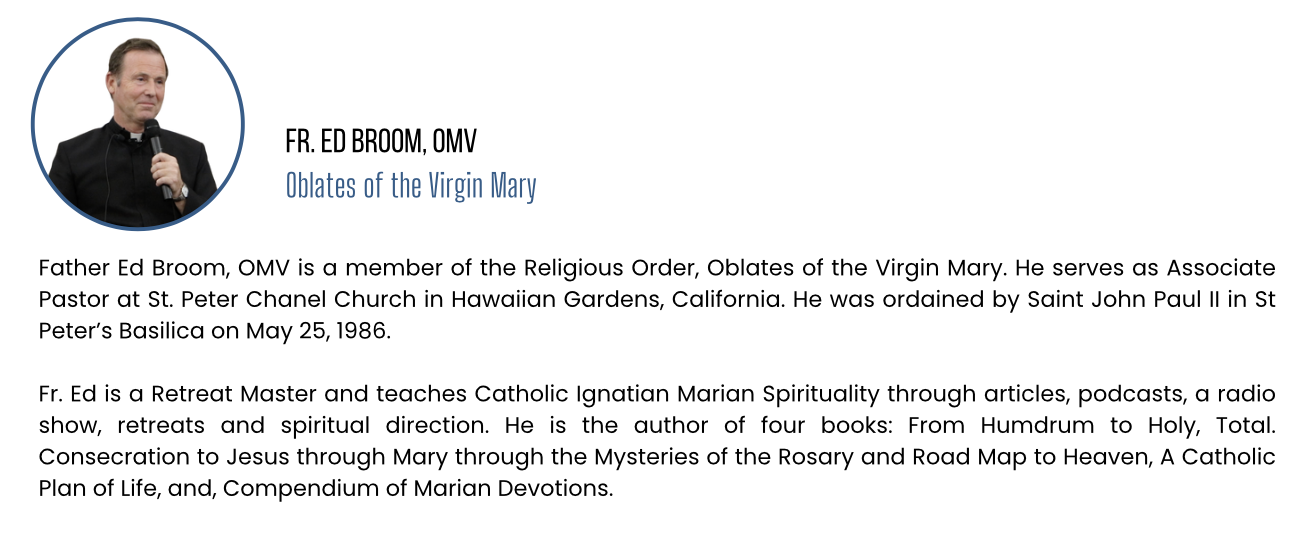
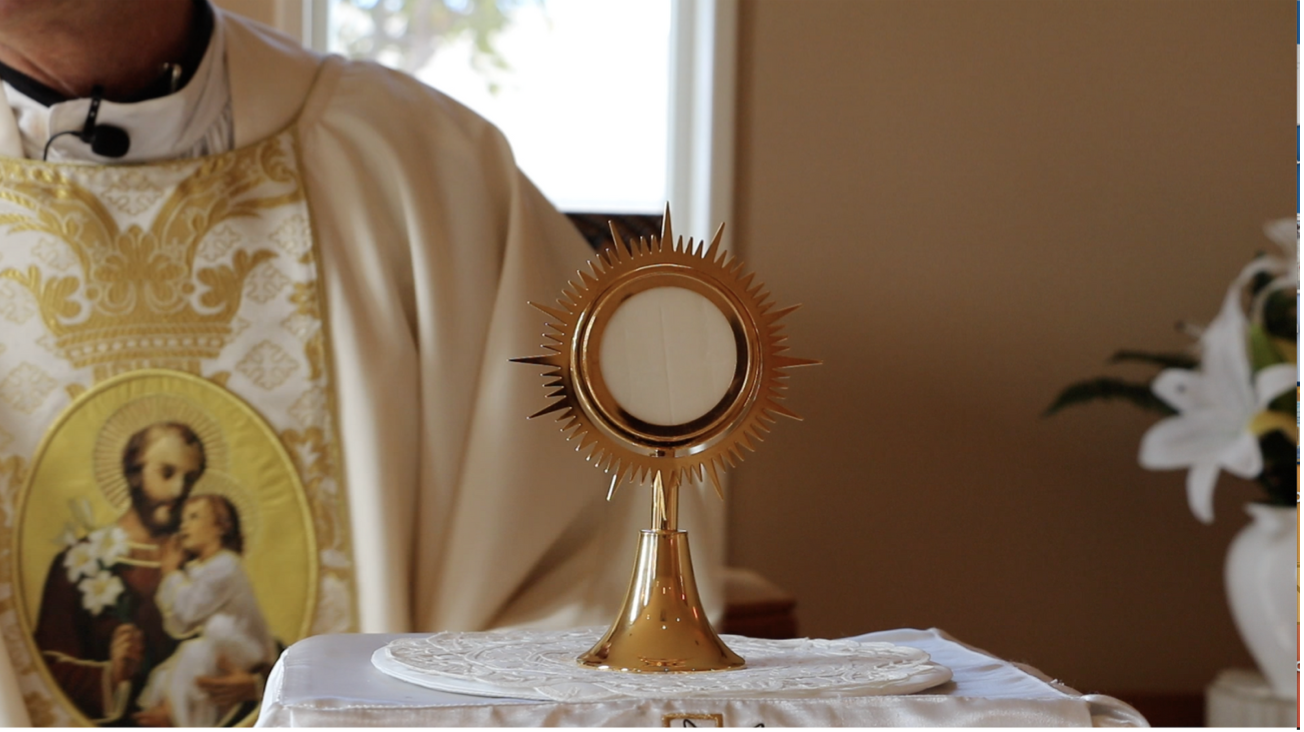
As a Deacon in 1985, in the city of Rome, I had the privilege of visiting and serving the sick in the Hospital of Saint John of God in Rome. In this huge hospital overlooking the Trastevere, the Religious Order of Saint John of God served the sick and elderly, seeing in them the Person of Jesus.
Several decades have passed since I visited and served the sick in that Hospital. What I remember most from this short visit that I made as a Deacon in Holy Week is not the Hospital, nor its geographical location, nor even the sick patients. What I do remember, and it left an indelible impression on me, is the exquisite manners of the Brothers who served in that Hospital.
A most warm welcome, winning smiles, kind and encouraging words, an exquisite repast, all of this and more flowed almost spontaneously from the Brothers of the Community in the Hospital of Saint John of God. Indeed, I felt treated as if I were a Prince, better yet, a King.
Remarking on their most delicate and exquisite manners and sincere hospitality, I complimented one of the Brothers of Saint John of God as I made my departure returning to the Seminary. My words: “In all honesty, you brothers are truly superb in your hospitality.” Spontaneously, and with the utmost humility, the Brother of Saint John of God responded: “Well, we better have been hospitable because that is actually our fourth vow: Poverty, Chastity, Obedience, and the vow of Hospitality!” Up to that point in my formation, even though I am a Religious priest, it never dawned on me that there could be four vows, much less one of Hospitality.
In all honesty, of all of the human and natural virtues, what Saint Thomas calls the social virtues, that of Hospitality has a special rank in my hierarchy of values. In fact, what condiments and seasoning are to food, so is hospitality to social dealings and encounters. Quite the contrary is the rude, discourteous, and selfish individual.
In the Old Testament, the Jewish people put a high premium value on the virtue of Hospitality. So much so that Abraham welcomed three strangers with so much courtesy that these three guests were actually angels sent from God to announce the good news that Abraham and Sarah, despite their old age, would have a child. All of this took place in the context of an exquisite manifestation of Hospitality.
Jesus Himself willingly accepted gestures of Hospitality and several times in the course of His three years of Public life. After Jesus called Matthew to follow Him, Matthew generously prepared a banquet for Jesus, and invited his friends whom he knew would also befriend Jesus.
Of all of the manifestations of hospitality perhaps Martha and Mary in Bethany was the most noteworthy. (Luke 10: 38-42) Mary sat at the feet of Jesus and engaged in a loving conversation. Preoccupied with all the details of hospitality, Martha wrapped herself in a nervous frenzy. Jesus gently rebuked Martha about being worried about many things. Mary chose the better part and she would not be deprived of it. Both Mary and Martha practiced hospitality. Mary entertained Jesus; Martha, for her part, served Jesus.
Now let us enter into another dimension or specific manner in which we should cultivate an authentic attitude of Hospitality. Let’s call it EUCHARISTIC HOSPITALITY. On a human and natural level, as expressed above, we should all strive to cultivate the virtue of hospitality. Perhaps not by taking a vow like the Brothers of Saint John of God, but at least living out hospitality in our dealings with others.
In a parallel, but very real sense, let us apply the attitude of Hospitality in the way that we treat Jesus in His Real Presence in the Holy Eucharist, Mass and Holy Communion.
What then are concrete ways that all of us can ameliorate our manners of hospitality in the way that we receive Jesus in the Mass, in the Eucharist, in our reception of Holy Communion? It is our hope that some concrete suggestions can upgrade the efficacy of our Holy Communions. In fact, there is no greater action in the world than the reception of Jesus in the Sacrament of the Holy Eucharist.
In fact, our eternal salvation might depend in a large measure on exactly how we do receive the Eucharistic Lord. He promised that He is the Bread of Life and that those who receive His Body and Blood worthily will have eternal life. (Jn 6)
TEN STEPS TO LIVE OUT EUCHARISTIC HOSPITALITY IN OUR LIVES
1. CLEAN THE HOUSE. Spring cleaning is part of the yearly routine for most households. How about soul-cleaning? With a bottle of Windex and a dry newspaper, the dirtiest of windows can shine as bright as the sun. So it is with the soul that is cleansed by the Blood of the Lamb of God who takes away the sins of the world in the Sacrament of Confession. In a word, the efficacy of the fruits of Holy Communion depends on the purity of soul affected by a Sacramental Confession.
2. DO NOT TAKE THE MASS AND COMMUNION FOR GRANTED. It is easy to take others for granted, especially our family members. The same can be said of the Mass and Holy Communion, especially in places where daily Mass is plentiful and access to Mass and Communion is easy. On Sacristy walls often can be seen a plaque with the poignant words: “Priest, man of God, say this Mass as if it were your first Mass, last Mass, and only Mass.” Likewise, we should receive Holy Communion every time as if it were our first, our last, and our only Holy Communion. It should not be the cynical saying: “Proximity breeds animosity.” Rather, the more we receive the Lord in Holy Communion, the more we should thank and love the Lord Jesus!
3. COME EARLY; AVOID BEING TARDY! Before starting any sporting event, an athlete always arrives early for warm-up exercises; if not, it is easy to pull a muscle or a hamstring and then be out of the lineup for weeks. So it is in the spiritual life, we should arrive early for Mass so that we can warm-up. The transition from the active life to the contemplative takes time and energy; allow this so as to enter into the mood, the spiritual milieu of Holy Mass. Remember, you are entering onto Holy ground, more holy than the ground that Moses tread upon!
4. GUARDIAN ANGEL’S HELP. All too unfortunate is the reality of how little we pay attention to the person and purpose of our Guardian angel. Each and every one of us, from the moment of our conception, is given a Guardian angel to watch over us, to guide and to help us get to heaven. Few are aware of the fact that our Guardian Angel can help us to pray, to focus and pay attention, in the greatest of all prayers—the Holy Sacrifice of the Mass. Ask your Guardian Angel to pray with you and for you at Mass!
5. OFFER YOUR OWN INTENTIONS. In Parish settings usually every Mass has a specific intention that somebody has offered, often months before. This person and intention is commonly mentioned by the priest at the start of Holy Mass. Nonetheless, this does not exclude our personal intentions that can be offered.
6. WHAT INTENTIONS TO OFFER? Actually, there are no limits. I will offer at times so many intentions that I fear the altar might collapse. In all honesty, there are no limits to our intentions, but I would suggest three:
a) PURGATORY. Always offer your Mass and Holy Communion for the souls in Purgatory and at least for one person who has passed from this life to the next.
b) CONVERSION OF SINNERS. Never fail to offer your Communion for the conversion of poor sinners, most especially death-bed sinners who are about to die and are not in God’s grace.
c) PERSONAL CONVERSION. In every Holy Communion beg the Eucharistic Lord to give you a personal Heart-transplant. May the Heart of Jesus transform your sinful heart into His Heart!
7. PARTICIPATE IN HOLY MASS. The Dogmatic Constitution on the Liturgy and Mass, Sacrosanctum Concilium, asserts that we should strive to participate fully, actively, and consciously in the Holy Sacrifice of the Mass. There are Masses that I have witnessed where it seemed as if the congregation’s participation was partial at best, passive, almost as if those present were in a coma!!!
8. NEVER FORGET THE “BIG 3” CONDITIONS TO RECEIVE THE EUCHARIST WORTHILY. The Catechism teaches with utmost clarity that to receive the Eucharist worthily there are three basic and indispensable conditions.
a) BELIEF IN THE REAL PRESENCE. Nobody should ever approach the Eucharistic without first having a firm belief that Holy Communion is truly the Body, Blood, Soul, and Divinity of Jesus, the Son of God.
b) FASTING. An Hour of fasting is required before receiving Jesus in Holy Communion.
c) STATE OF GRACE. Nobody should approach the Eucharistic Lord being aware of having committed a Mortal sin. Sacramental Confession and Absolution must be received before receiving Jesus the Bread of Life.
9. EUCHARISTIC MANNERS UPON RECEPTION. Before receiving the Lord Jesus in Holy Communion, we should approach with great reverence. Hands should be folded, an act of reverence should be made, and the reception should be done with great humility, modesty, confidence, and burning love.
10. THANKSGIVING. After receiving Jesus in Holy Communion, we should spend some quiet time in which we talk to the Lord Jesus. This is the height of Eucharistic hospitality. Like Mary in Bethany, we should receive Jesus with love; we should listen to Him; we should gaze at Him within our heart, and most important, we should tell Him that we love Him!
My friends in the Lord Jesus, let us humbly beg the Blessed Virgin Mary, who always welcomed Jesus into her life from the moment of her Virginal Conception until Jesus ascended into Heaven, that we would truly practice hospitality. But most especially, let us warmly receive Jesus into our hearts in Holy Communion. If done, then He will receive us one day into Heaven. Amen
